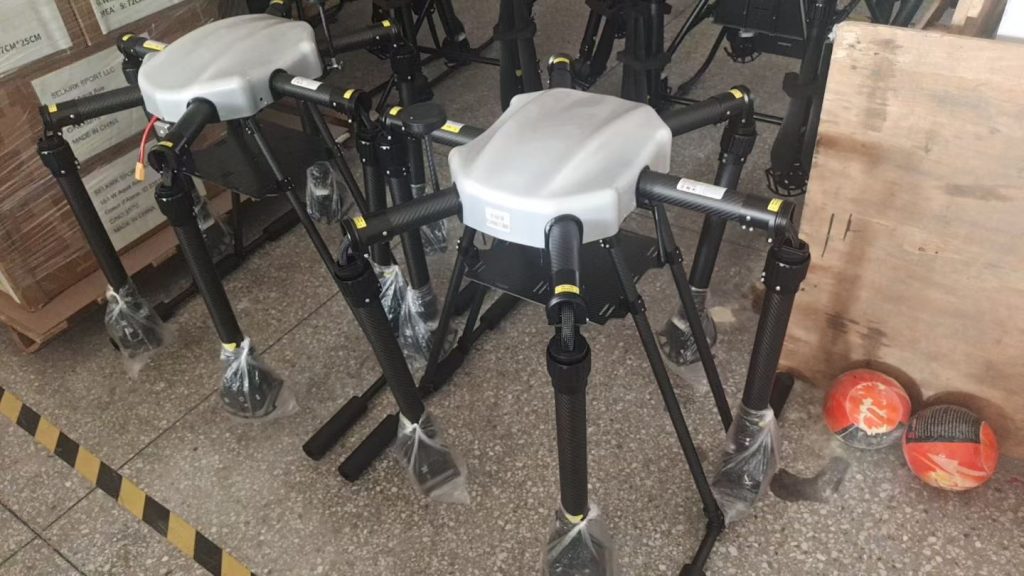
Bridging Innovation Across Borders: How Chinese Agricultural Drones Are Elevating Precision Farming in Germany
Germany, Europe’s agricultural powerhouse, is renowned for its cutting-edge farming technologies, high-yield crop production, and commitment to sustainability. From the fertile plains of Lower Saxony to the vineyards of Baden-Württemberg, German farmers have long embraced mechanization and digital solutions to maintain their competitive edge. Yet, as the industry faces mounting challenges—labor shortages, stricter environmental regulations, and the need for greater efficiency—Chinese agricultural drones are emerging as a transformative force, offering precision, adaptability, and cost-effectiveness tailored to Germany’s evolving agricultural landscape.
Germany’s Agricultural Evolution: The Need for Smarter Solutions
Germany’s agricultural sector is a model of efficiency, contributing significantly to the EU’s food supply while adhering to some of the world’s strictest environmental standards. However, the industry is at a crossroads. Key challenges include:
-
Labor Shortages: With an aging farming population and a declining interest among younger generations in rural careers, finding skilled labor for seasonal tasks like crop spraying, monitoring, and seeding has become increasingly difficult.
-
Environmental Pressures: Germany’s commitment to reducing pesticide use, minimizing soil compaction, and lowering carbon emissions demands farming practices that are both productive and eco-friendly.
-
Precision Demands: Modern German farmers require tools that can optimize input usage—whether fertilizers, herbicides, or water—while maximizing yields and crop quality. Traditional methods, though effective, often lack the granularity needed for today’s high standards.
In this context, Chinese agricultural drones are stepping in as a versatile solution, bridging the gap between tradition and innovation.
Why Chinese Drones? Precision, Adaptability, and Value for German Farms
Chinese agricultural UAVs have rapidly gained recognition globally for their advanced features, reliability, and competitive pricing. For German farmers, these drones offer a unique combination of benefits that align perfectly with the country’s agricultural needs:
1. Engineered for European Conditions
While Chinese drone manufacturers serve diverse global markets, they have increasingly tailored their products to meet the specific demands of European agriculture—including Germany’s varied climates and terrains. Key features include:
-
All-Weather Performance: Drones designed to operate efficiently in Germany’s changeable weather, from damp spring conditions to dry summer heat, ensuring consistent performance across seasons.
-
Precision Navigation: Advanced GPS and RTK (Real-Time Kinematic) systems enable centimeter-level accuracy, crucial for navigating Germany’s smaller, meticulously managed fields and avoiding overlaps in spraying or seeding.
-
Durability and Safety: Robust build quality ensures reliability in demanding environments, while features like obstacle avoidance and automated return-to-home functions enhance safety in complex terrains, including vineyards and hilly regions.
2. Cost-Effective Efficiency for Diverse Farm Sizes
German agriculture encompasses everything from large-scale grain and potato farms in the north to small, specialized operations in the south. Chinese drones cater to this diversity by offering scalable solutions:
-
High Productivity for Large Farms: Industrial-grade drones capable of covering 15–25 hectares per hour with large spray or seed tanks, significantly reducing labor and time costs for extensive operations.
-
Affordable Precision for Smallholders: Compact, user-friendly models designed for smaller plots, enabling family-run farms to adopt precision agriculture without significant upfront investment.
-
Lower Operational Costs: Electric-powered drones with minimal maintenance requirements offer a cost-effective alternative to traditional machinery, reducing fuel expenses and downtime.
3. Sustainability Aligned with German Environmental Goals
Germany’s agricultural policies strongly emphasize sustainability, from reducing chemical runoff to lowering carbon emissions. Chinese agricultural drones support these objectives by:
-
Targeted Application: Multispectral sensors and AI-driven analytics allow for precise mapping of crop health, enabling variable-rate application of pesticides, herbicides, and fertilizers. This reduces input waste, minimizes environmental impact, and ensures compliance with EU regulations.
-
Eco-Friendly Operation: Electric and hybrid drones produce zero direct emissions, making them an attractive option for farms aiming to reduce their carbon footprint while maintaining productivity.
-
Water Conservation: Precision spraying technology minimizes water usage, a critical advantage in regions prone to drought or facing water usage restrictions.
From Shenzhen to Schleswig-Holstein: Seamless Import and Local Integration
Importing Chinese agricultural drones into Germany involves compliance with EU regulations, including CE marking, RED (Radio Equipment Directive) compliance, and adherence to drone-specific safety standards. Forward-thinking exporters work closely with German importers and distributors to ensure a smooth process, often providing:
-
Localized Training and Support: Comprehensive training programs for drone operators, agronomists, and technicians, covering safe operation, data analysis, and maintenance. Many providers also offer German-language instruction to facilitate adoption.
-
After-Sales Service: Established service networks in key agricultural regions, such as Bavaria, North Rhine-Westphalia, and Saxony, ensure prompt technical support, spare parts availability, and software updates.
-
Customized Solutions: Some suppliers offer tailored packages, including drones equipped with software for specific crops (e.g., wheat, corn, or grapes), as well as integration with existing farm management systems.
Success Stories: Early Adoption and Measurable Impact
German farmers who have integrated Chinese agricultural drones into their operations report significant benefits:
-
In Lower Saxony, a large grain farm reduced pesticide application time by 40%, while achieving more uniform coverage and lowering chemical usage by 20%. The farm manager noted, “The drones allow us to treat crops precisely when and where needed, without wasting resources or risking over-application.”
-
In the Mosel wine region, viticulturists use drones for canopy monitoring and targeted spraying, protecting grapevines from fungal diseases while minimizing chemical exposure to the environment. “We’ve seen healthier vines and better-quality grapes,” said a local winemaker, “and the drones save us countless hours of manual labor.”
-
In Saxony-Anhalt, a cooperative of smallholder farmers adopted drones for seeding and fertilizing, overcoming labor shortages and improving efficiency during critical planting windows. “It’s a game-changer for us,” shared a cooperative leader. “We can now manage our fields more effectively without hiring additional staff.”
A Strategic Partnership for the Future of Farming
The collaboration between Chinese agricultural drone manufacturers and German farmers represents more than just a commercial exchange—it’s a partnership driven by mutual benefit. German agriculture gains access to innovative tools that enhance productivity, sustainability, and resilience, while Chinese manufacturers refine their technologies based on the feedback and high standards of one of Europe’s most demanding markets.
As one German agronomist observed, “These drones are not replacing farmers—they’re empowering them. By providing precise, efficient, and environmentally friendly solutions, they’re helping us grow more with less, while adapting to the challenges of a changing world.”
Looking ahead, the integration of Chinese agricultural drones into Germany’s farming ecosystem is poised to accelerate. With ongoing advancements in AI, automation, and sustainability, these UAVs will play an increasingly vital role in shaping the future of European agriculture—one flight at a time.
For German farmers seeking to stay ahead in a competitive and regulated industry, Chinese agricultural drones offer a smart, practical, and forward-thinking solution. The sky is no longer the limit—it’s the next frontier for smarter farming.
THE END

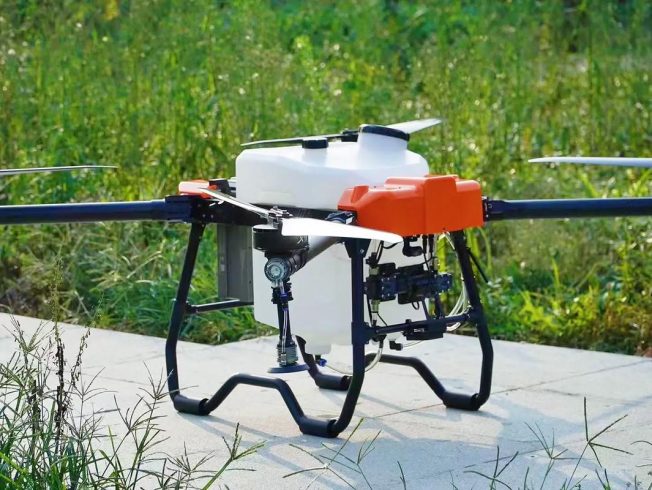
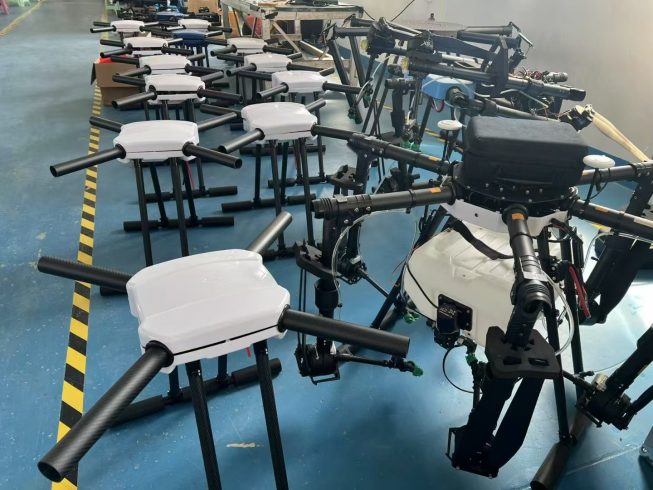
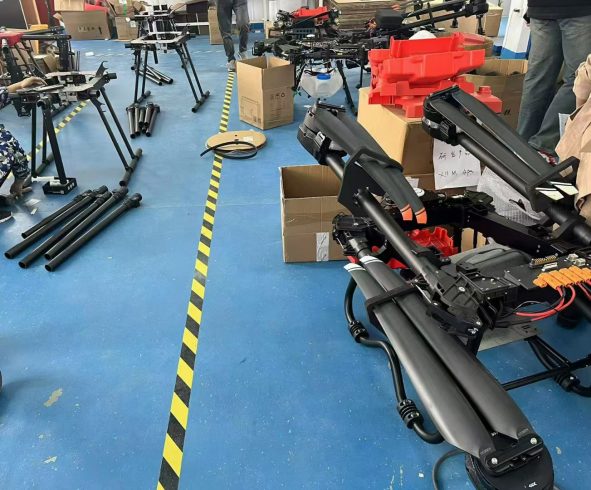
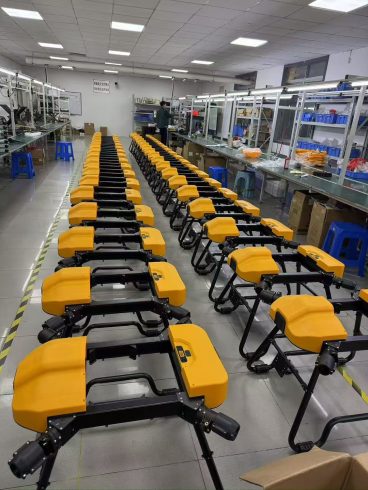

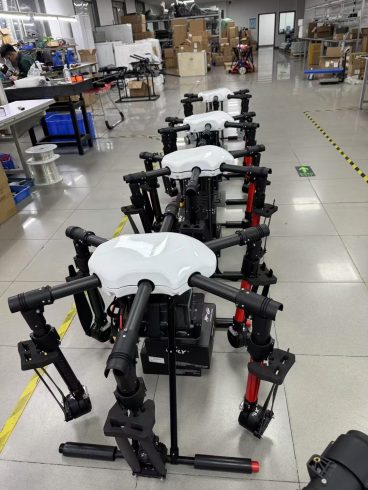
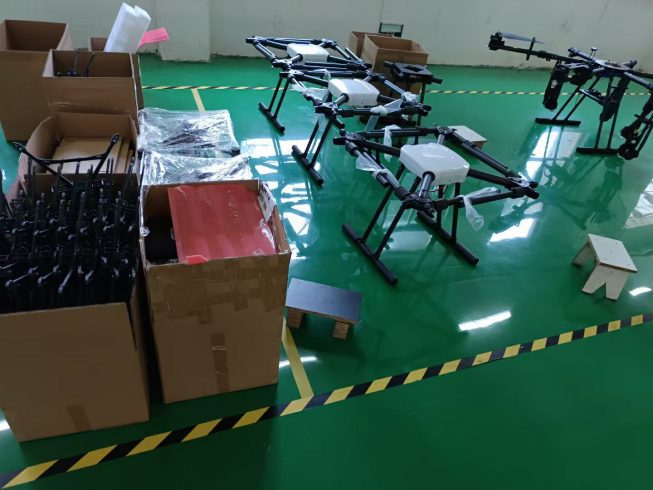
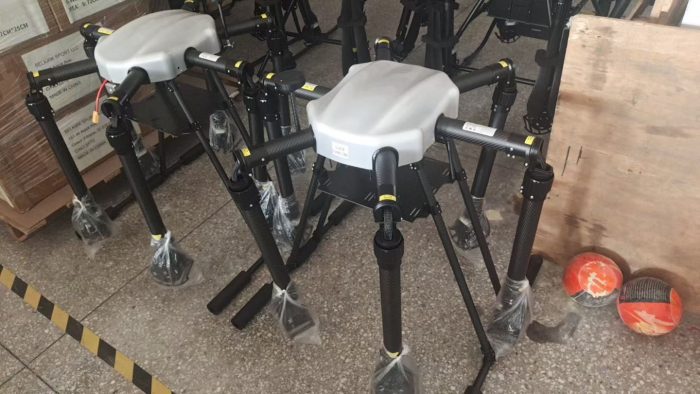
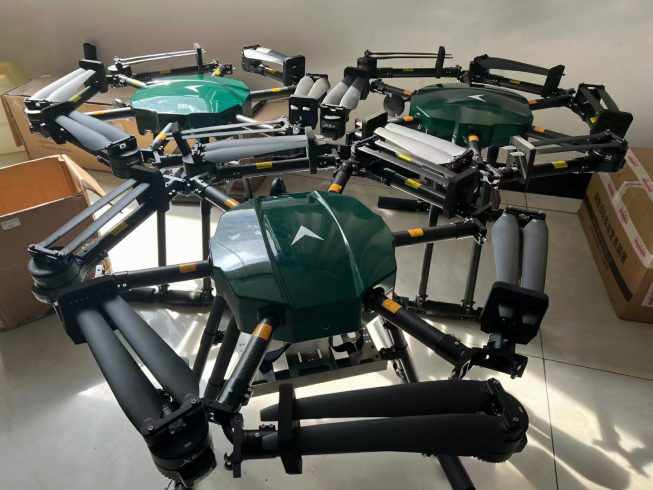
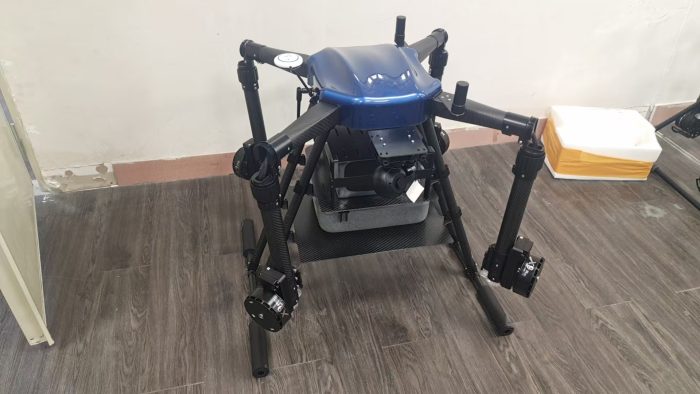

暂无评论内容